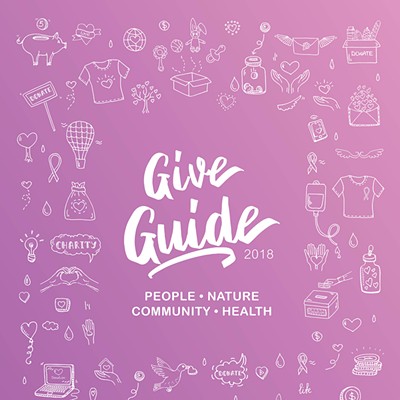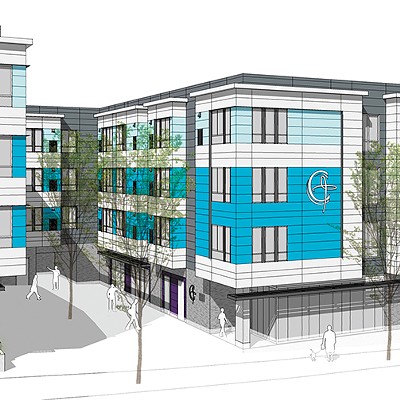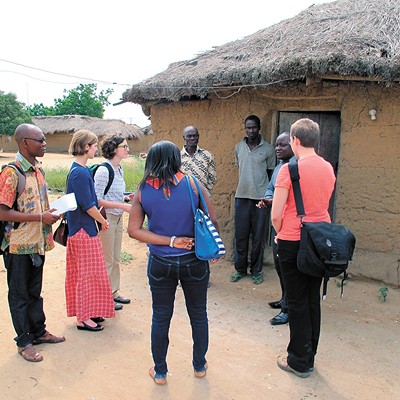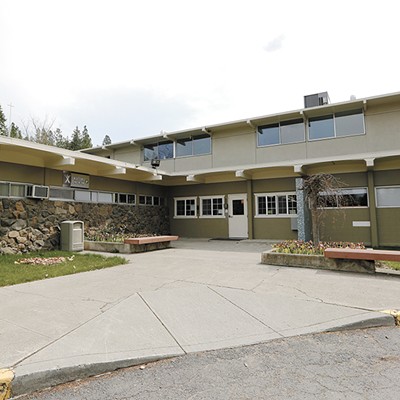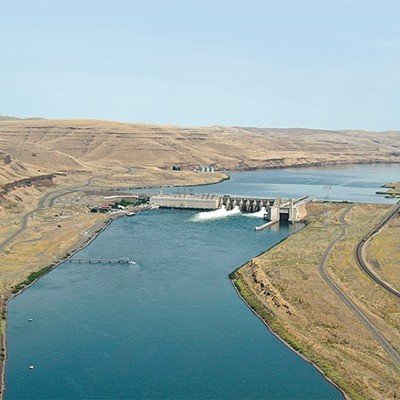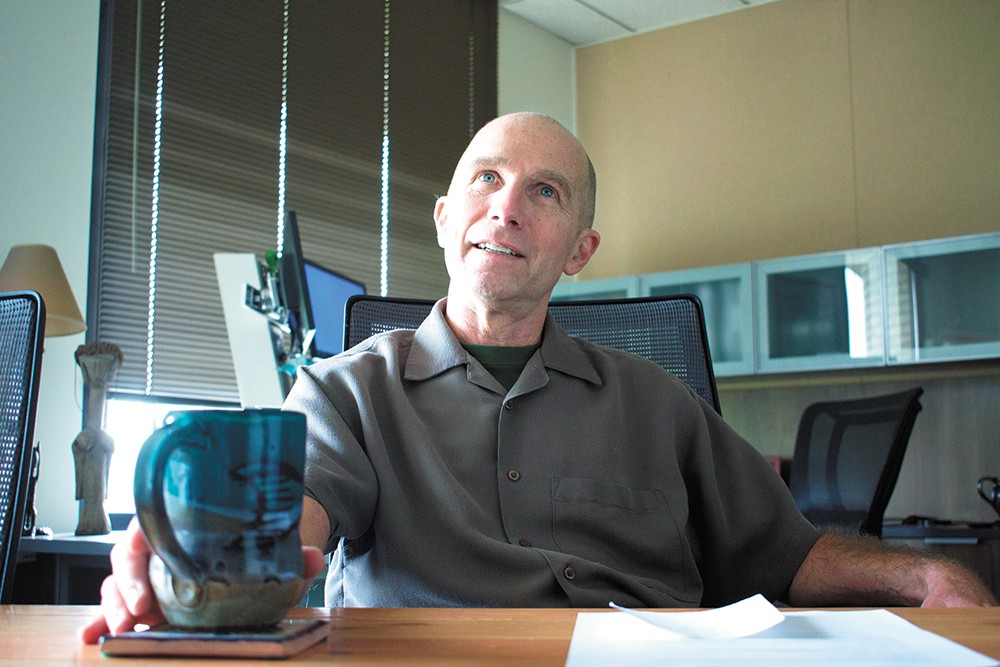
When you think of health, you might imagine a visit to the doctor. You have a problem and a medical provider diagnoses it and prescribes something to treat it.
But do you also think of economic insecurity, educational attainment and homelessness as being a part of health?
You should, says Bob Lutz, health officer for the Spokane Regional Health District (SRHD).
"If I as a physician prescribe somebody insulin for their diabetes, but they don't have a refrigerator to store their insulin, or they can't afford the insulin, then what's the likelihood that I'm going to be able to significantly impact their disease?" Lutz asks.
Lutz, who took over as health officer a year ago, says the health district remains dedicated to addressing social issues like economic insecurity, educational attainment or homelessness. That's how he hopes SRHD can make a difference down the road. And it requires community partners, including nonprofits.
"It's working upstream, trying to collectively address those issues," Lutz says. "Because the health district can't do it alone, but we can do it collectively."
The most pressing health issues he identifies locally are not particularly unique to Spokane: opioid use, suicide and climate change. Still, Lutz says as he looks out his window into the smoky air, it's beginning to hit home.
"When you have issues impacting a community, it doesn't really impact you until it hits you directly," he says. "People are being made more aware of climate change because of the air we're breathing, or attempting to breathe. People are made more aware of opioid use because it's so prevalent and people know a family member or a friend who has used, and maybe even overdosed."
Lutz knows Spokane has an opioid problem. What's hard to pin down, though, is exactly how bad it is. Looking at data that's two years old, as has been the case, doesn't say much about the extent of the problem today, he says.
"There's a real effort to get much more real-time data by connecting to the hospitals," Lutz says.
The issue of rising suicide rates is another "high visibility issue in the community," he says. In Washington, the suicide rate was up 19 percent from 2014-2016 compared to 1999-2001, according to a recent report from the Centers for Disease Control. He hopes the community will continue to have conversations around suicide, and Lutz is unafraid at looking at what he calls his "third rail:" guns.
"Gun violence and suicide is endemic. We've accepted it for years," he says. "When 60 percent of gun deaths are suicide ... come on folks. We need to do something about that."
Climate change, too, is another high visibility issue, in that you can now see it when looking out the window in summer. Lutz points out that the air quality in recent years has been poor in recent years due to wildfire smoke.
"What I see out there is this existential concern that we need to be addressing," Lutz says.
Lutz talks about the need to end what are called "deaths of despair," a term coined by Princeton University professors Anne Case and Angus Deaton. They include overdose deaths and suicides. And the way to address those, Lutz feels, is a social network that provides for individuals.
"You don't have opportunities to pull yourself up by your bootstraps if you don't have any bootstraps to pull yourself up by," he says.
The health district works with nonprofits to create that network. Lutz mentions Catholic Charities, Frontier Behavioral Health and the YWCA as critical partners in the efforts to address homelessness, behavioral health and family trauma.
"If there is a social concern, a social issue, then there is a nonprofit that is involved. And the health district has been involved in building those partnerships and really trying to help," Lutz says.
The health district collects data and is funded by the state, but it's somewhat limited.
"Being able to partner really helps us collectively address the problems we're talking about," Lutz says.
The idea of going upstream to address public health concerns isn't new, Lutz says. What is exciting, however, is how attitudes toward it are beginning to change. Today, he can talk to physicians or providers, and they know the phrase "social determinants of health."
"That's what public health is trying to do," he says, "is address social determinants." ♦







